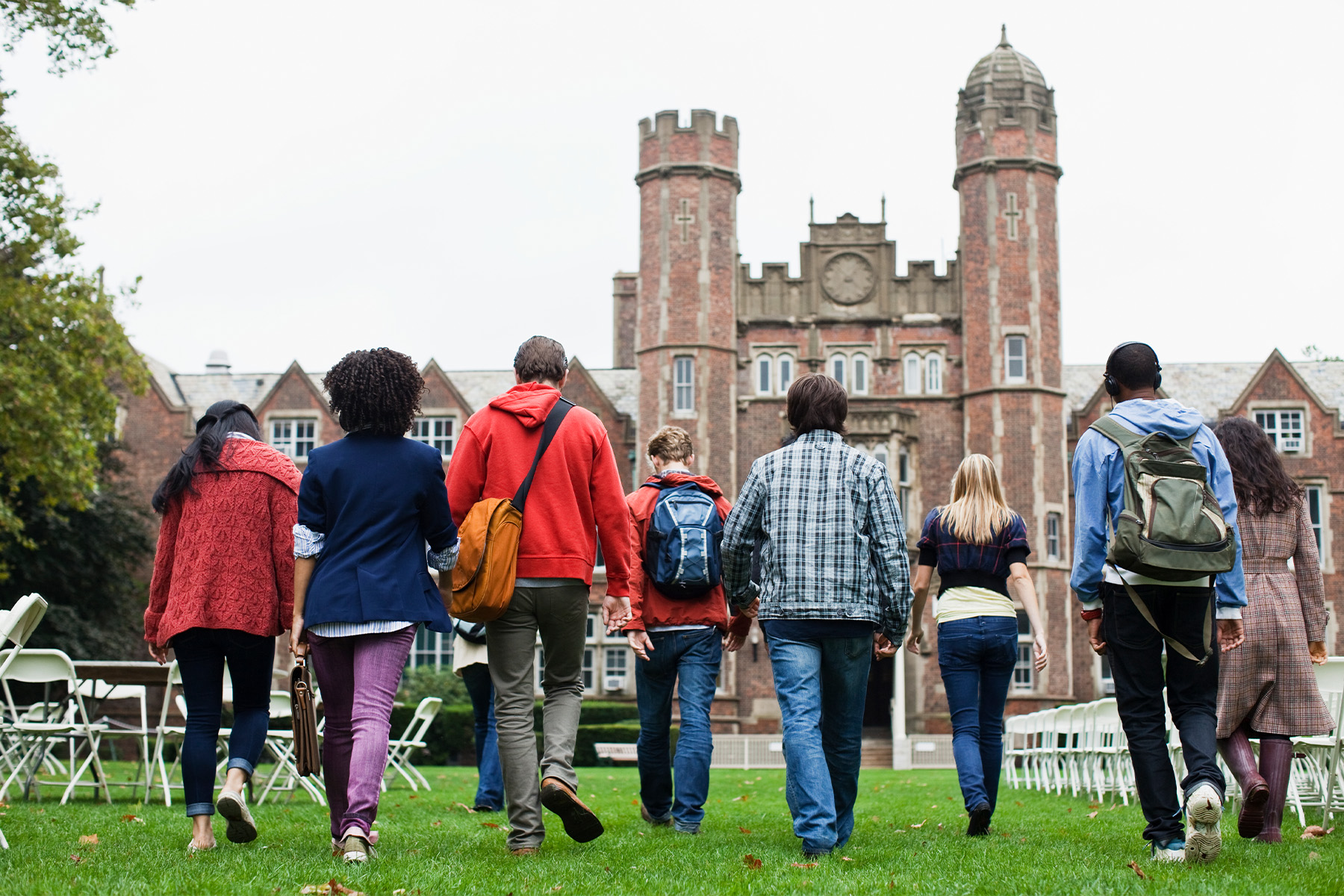
Universities can’t forget about lower socio-economic students

If the Government wants to increase higher education participation, it first needs to tackle the very real financial, psychological and cultural barriers for disadvantaged students
Published 18 September 2023
There has recently been significant chatter in the media and in higher education circles about how to increase the number of Australians who go to university – a closing of the ‘equity gap’. In particular, a hopeful increase in graduates from rural and lower socio-economic groups who may not have thought it an option.
But as someone from a working-class family with a public-school education who made that leap, I can’t help but wonder – does everyone understand what that really means?

While I relished the opportunity to attend university and appreciate the doors it opened for me post-graduation, it was not without its uncertainties and difficulties.
Federal Education Minister Jason Clare announced in July he would implement the first steps recommended in the Universities Accord interim report – reforms meant to increase higher education participation. I have heard similar ideas from my boss, University of Melbourne Vice-Chancellor, Professor Duncan Maskell.
That is, universities should not just be for people from wealthy families and private schools. On this point, I couldn’t agree more.

However, nothing the Government has proposed so far seems to tackle very real financial, psychological and cultural barriers for disadvantaged students – let alone serious problems in the university sector including casualisation of the academic workforce and a lack of research funding.
Getting people from lower socio-economic backgrounds into university and keeping them there requires more than setting a target and telling people they should enrol.
Going to university is an expensive business.
Degrees come with hefty price tags and student loans, especially for students studying humanities, law and commerce (something which remains unchanged despite the government admitting the system is broken).
Students can endure crippling rents and cost of living which even with Austudy, scholarships and part-time work, can put university out of reach for some.
Others might reasonably question if the debt, costs and sacrifices are worth it.

It is difficult watching your high school friends and people you grew up with living a very different lifestyle to you – working and earning money, buying houses, finding partners, getting engaged and married and having children. All while your life is pretty much study and work, with years ahead before you’re even remotely qualified.
That, along with their negativity about university, means it’s hard not to feel like you’re missing out or being left behind.

Politics & Society
Australia’s universities must become more welcoming
Being a university student takes a lot of self-discipline. There is always that lecture to attend, essay to write, new skill to learn or exam to study for, along with the constant pressure and anxiety that goes with regular assessment.
Often being a good student means being a bad friend. Competition for professional jobs is cut-throat and barely passing is not enough. Especially if you don’t have any family connections to pull some strings for you.
What about the psychological and social hurdles, especially in more ‘prestigious’ courses?
The loneliness and isolation when no one else you know is at university, while everyone else already seems to know each other. Some students continue to look down on people who had the audacity to get in without going to the ‘right’ schools or living in the ‘right’ postcodes.
The niggly little voice in your head that says “people like you don’t belong in places like this” even though in reality if anyone earnt it, you did.

Then there is a realisation you’ve long surpassed the education and professional experiences of your parents and everyone you know. With no one to advise you, you need to work it out for yourself.
Straddling two worlds, you realise no one from your old life understands your new languages of legalese and academic-speak. You learn not to talk about the ideas and intellectual excitement of university life with family and old friends in case their eyes glaze over and they think you’re ‘up yourself’ or being a snob.
People from your university life might think higher education is a natural rite of passage for everyone without realising that for many people it isn’t the norm.

For many students the social issues covered in legal, humanities and social science courses are purely intellectual exercises. But for students from lower socio-economic groups it has the added emotional impact of feeling like you have lived and breathed them.
No wonder education has become a great political and social fault line between the left and right.
I can’t see how anyone who comes from a lower socio-economic group can get into university, get over the setbacks and complete a degree without significant drive, commitment and external support.
My drive came from two places. The first, seeing my mother (who hadn’t finished high school) bravely study for an Arts degree part-time as a mature-aged student at Swinburne back when university was still free and noticing myself become enthralled with it. I formed a view that university was a place I absolutely had to go and no other life would satisfy me.
The second, high school and university study remained my way of mentally escaping conflict and financial strain at home – university felt like the only way I could turn my life around.

If we are serious about achieving education equity then recognising and reducing the financial, social and psychological impediments is a must. Its positive effects can be intergenerational.
I certainly don’t regret going against the grain despite its many challenges.
As an academic, I see my experiences as enriching my research, while allowing me to empathise and hopefully inspire my students who are undertaking a similar journey.
Banner: Getty Images
